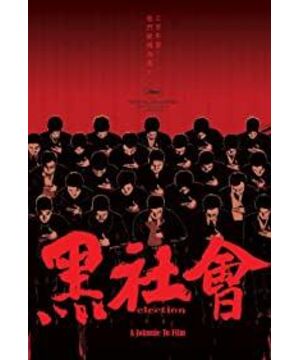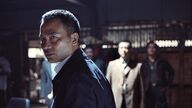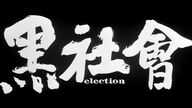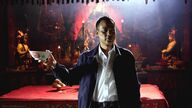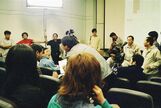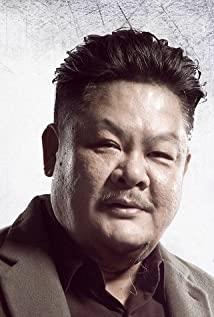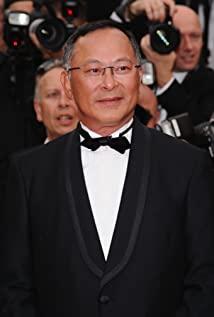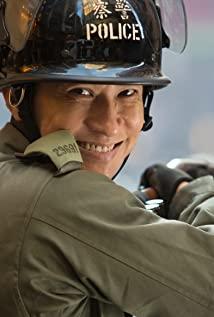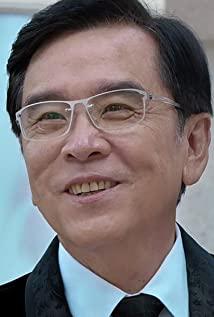The following text is excerpted from my (Zhang Jiande) public forum at the Melbourne International Film Festival on August 6, 2005 opportunity, an interview with Johnnie To. He was a guest invited by the film industry, and "Underworld" was chosen as the closing film for that year.
Zhang: Underworld is your latest work. Most of your previous work has focused on gunfights, but "Underworld" doesn't even feature a gun. Why no guns this time? Don't they all use guns?
Du: The underworld in Hong Kong has been trying not to use guns as much as possible. Most of the time, they use knives. What you see in my or other people's works, gangsters use guns so stylishly, that's not the actual situation of the gangsters. The triads in Hong Kong are very smart and know that Hong Kong law stipulates that if they are arrested with a gun, they will face longer imprisonment; if they are only used a knife, they will be sentenced to a maximum of seven years. So they would rather use a knife. So the real question is why I, who used to love guns so much, didn't work in "Underworld" this time. That's because what I want to show this time is a Buddhist concept of cause and effect about the history of Chinese gangs. China's underworld has a history of 300 years, and its original purpose was to fight against the Qing Dynasty and restore the Ming Dynasty. But today's gangs have long forgotten the principles of those Hongmen founders. They forgot that brotherhood.
Zhang: Although no guns were used, the film was still quite violent. But the violence this time is largely based on the characters themselves. For example, the character played by Tony Leung looks very violent, while Ah Le played by Ren Dahua looks very calm, but eventually becomes extremely violent. Did you really design it that way? Violence through the characters themselves? How do you feel about violence?
Du: Gangs are violent and will do anything to achieve their goals. Scorsese has shown all kinds of violence in his work. Italians have their ways of violence, so do British and Americans. We Chinese also have our own style of violence. For gangsters, violence is used to make people fear. In Hong Kong, when gangsters come at you with knives, it is to strengthen your fear step by step. That's how they show their power. If they don't do that, they won't be able to restrain their men. Violence is a form of control; they will kill you, everyone around you, and your family. Of course, in my film I don't want to focus too much on violence itself, I want to show violence as a means of controlling others.
Zhang: The last time I met you in Hong Kong, you said that you were shooting a two-part movie, and "Underworld" was the first part. Is the second part finished as well?
Du: The second part will focus on the future of Hong Kong's underworld after 1997. It will show how the mainland has gradually succeeded in controlling the Hong Kong underworld. This is their promise. To do this after taking over Hong Kong, Hong Kong has never really done it. past.
Zhang: Is the film based on real people and events?
Du: Yes, but you can't make a documentary either (laughs). What I'm going to do is dramatize it. Some people might not see it as a "hero movie". A Hong Kong reporter once told me that in Cannes ("Underworld" was an entry in the 2005 Cannes Film Festival) many viewers were frightened by it and thought it was very violent. How much surprised me. I'm skeptical, does any audience really think it's violent? Because in my opinion, violence only accounts for one-tenth of what this movie is about. To be honest, my starting point was not to make a violent gangster movie. I just want to make a film that shows the history of Hong Kong - or the history of the Chinese people. I can say that the mainland directors are unlikely to make this film because they don't understand the underworld. Only people in Hong Kong understand the underworld. You can see the underworld as a disgrace to the Chinese, but you can also see it as an integral part of culture or history. All in all, I just wanted to make a movie like this.
Zhang: You show their rituals in the film, and every action and behavior of the characters looks real. How was the preparatory work carried out? Have you invited anyone in the underworld to serve as a consultant?
Du: I spent many years preparing, and I also met a number of "big brothers", drinking and eating with them. I told them what I was going to do, and I didn't want to make it a "hero movie". The underworld always oppresses others, but at the same time they emphasize moral principles. Without these principles, they would really become bandits - of course, they are by no means "heroes", which is not only recognized by "Xin Yi An" but also "Big Brother" of "He Shenghe". I've heard a lot of their stories and seen them in action - they're no heroes. When I was eight years old, my family moved to the Kowloon Walled City, so I grew up in an environment full of underworld. In that place, smoking, gambling, drugs, prostitutes, everything. Later, when I was a little older, our family moved to Lok Fu, which is also a gang-controlled area. After that, we moved to Niu Tau Jiao, too. Only when I got into the TV industry and went to work for TVB did I really get away from these people. When I was in school, many of my classmates were gangsters—there were winners and losers; some were dead on the street, some were addicted to drugs. Seriously, what is this all for? In fact, it's all about survival.
Zhang: Did you encounter any censorship problems in Hong Kong or mainland China when the film was released?
Du: Because of the subject of the filming, this version will definitely not be released in the mainland. You have to come up with a version acceptable to mainland censorship agencies. And in Hong Kong, I expected it to be listed as level 3, and I'm happy with that - as long as it doesn't ban it, whatever. Just two weeks ago, the review body decided to make it Level 3, but didn't ask us to make any changes. For me, the important thing is to make this film so that it can become a proof of the underworld culture. As for what can be made, there is a limit, which I can still accept. If the censors suggest me to make some omissions from an ethical point of view, I can accept it; but if it is motivated by political motives or pressure, it will not work.
Zhang: In your works, there is usually a certain scene that stands out, which is what we call the main scene. What do you think is the best scene in "Underworld"?
Du: (laughs) I also don't understand why people always tell me that this or that scene in my film is really good. After watching "Gunfire", they thought that the scene where the bodyguards kicked the paper ball together was particularly brilliant, but I didn't think it was that good, it just happened to be needed. We shot this scene in about an hour; they were just kicking a ball of paper, it's that simple, and all I want to reflect is their boredom, and it turned out that everyone loved the scene. If you ask me now, which scene of "Underworld" is the best, I can't tell. What I like the most is not necessarily appreciated by the audience; what the audience likes the most is not necessarily my favorite. My own favorite work is "Judo Dragon Tiger List", but it is almost never mentioned.
View more about Election reviews


